Coronavirus: Compulsory vaccines in the UK and other rumours fact-checked
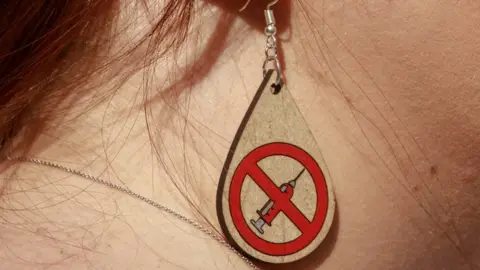 Getty Images
Getty ImagesWe've been fact-checking the most widely shared dubious coronavirus claims this week.
There's no mandatory vaccine law in UK
First, we've looked at a widely shared video posted on YouTube that claims changes introduced in UK law give the government the power to enforce vaccinations as a result of the coronavirus outbreak.
Under current UK law, however, this is not the case - vaccines are not compulsory.
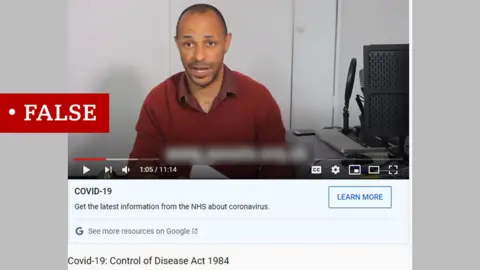
The presenter of the video has a copy of the Public Health (Control of Disease) Act 1984, which applies in England and Wales.
This legislation gives the government powers to prevent, control or mitigate the spread of an infection or contamination.
However, it explicitly states that regulations cannot require a person to undertake medical treatment, including vaccination.
The Coronavirus Act introduced in March 2020 extended this prohibition to Scotland and Northern Ireland.
The current legislation "makes explicitly clear that the power to make such regulations does not include mandatory treatment or vaccination", says Louise Hooper, a barrister at Garden Court Chambers in London.
The video also claims the government has sweeping powers to detain people believed to be infectious with the virus.
It's true there are powers in existing UK law to prevent the spread of disease, such as requiring someone to self-isolate if potentially infectious.
"These are wide-ranging, however, there are important limitations on all of these powers," says Louise Hooper.
The person must be told why they are being told to isolate, it's limited to 14 days and can be appealed against to a magistrate. This can sometimes be extended but then must be reviewed every 24 hours.
"Plandemic"?
In the jargon of this next widely shared video, the global Covid-19 pandemic is a "plandemic", suggesting it was a planned event.
So popular has this online film become that the term was, for a while, a top-trending search in the US.
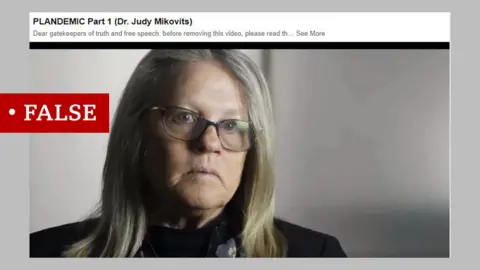
It has clocked up millions of views - #Plandemic has been tweeted tens of thousands of times.
The video is filled with medical misinformation about the origins of the virus and how it is spread.
It contains an interview with researcher Judy Mikovits, well-known for her anti-vaccination activism, who claims Covid-19 was not "naturally occurring" and was "manipulated" in a laboratory.
This is a widely shared idea, but there is no scientific evidence for it.
Several versions of the film have been removed by YouTube, which says the video has "content that includes medically unsubstantiated diagnostic advice for Covid-19". Other social networks have also been taking it down.
Despite these efforts to remove it, users have been widely re-posting the video.
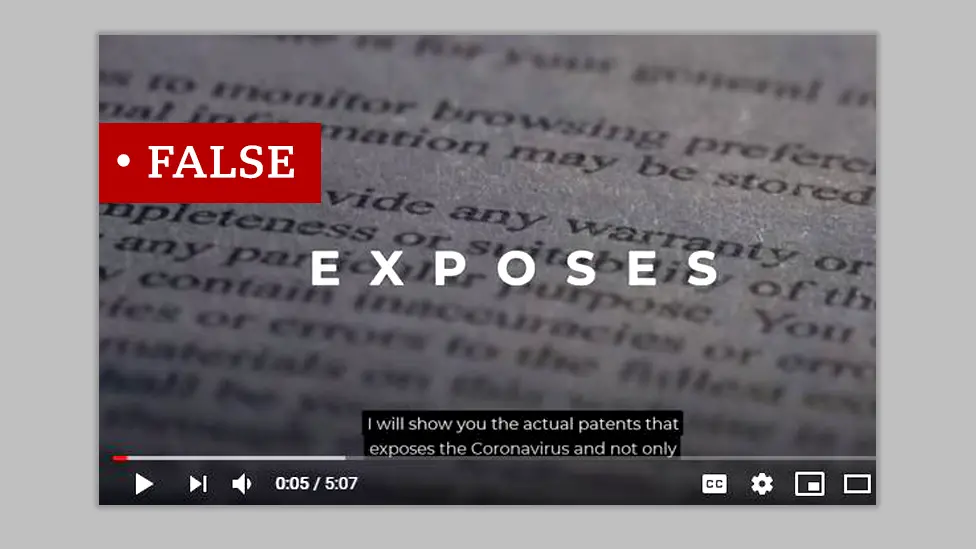
The genome patent claim
Along with a host of false health claims (such as treating patients with hot water, Vitamin C and sunshine), another video, this one viewed more than a million times on YouTube also claims that a patent for the genome sequence of the new coronavirus was taken out long before the latest outbreak began.
This rumour has been swirling around online for months, suggesting the release of a previously known virus.
However, the "coronavirus patent" referred to in the video was one that was applied for in 2006 for the genome sequence of Severe Acute Respiratory Syndrome (Sars) - a different type of coronavirus. The application was ultimately not pursued.
The video then refers to the existence of a patent for a "coronavirus vaccine" - one held by the British-based Pirbright Institute.
The video fails to mention that this is linked to a different coronavirus that affects poultry.
The Pirbright Institute receives some funding from the Bill and Melinda Gates Foundation. This has contributed to the baseless but widespread online rumours that Bill Gates holds a patent for a Covid-19 vaccine.
Demand grows for Madagascar's herbal drink
We've looked previously at a herbal tea being promoted by President Andry Rajoelina of the island nation of Madagascar as a treatment for coronavirus.
The drink, produced under the name Covid Organics, is now being widely distributed across sub-Saharan Africa despite a lack of scientific testing.
Among those pinning their hopes on the tonic is Tanzania's president John Magufuli, who ordered a plane to the island to pick up supplies, as have Equatorial Guinea and Guinea-Bissau.
Authorities in Gabon and Comoros have also expressed intentions to import Covid Organics to use as a remedy.
And the Covid-19 task force in the Democratic Republic of Congo have said they intend to produce their own treatment using Covid Organics as a base.
The WHO has issued a warning in response to the production of the Covid Organics drink, that all traditional remedies and plants should be tested for efficacy and adverse side-effects.
"Africans deserve to use medicines tested to the same standards as people in the rest of the world," it said in a statement.
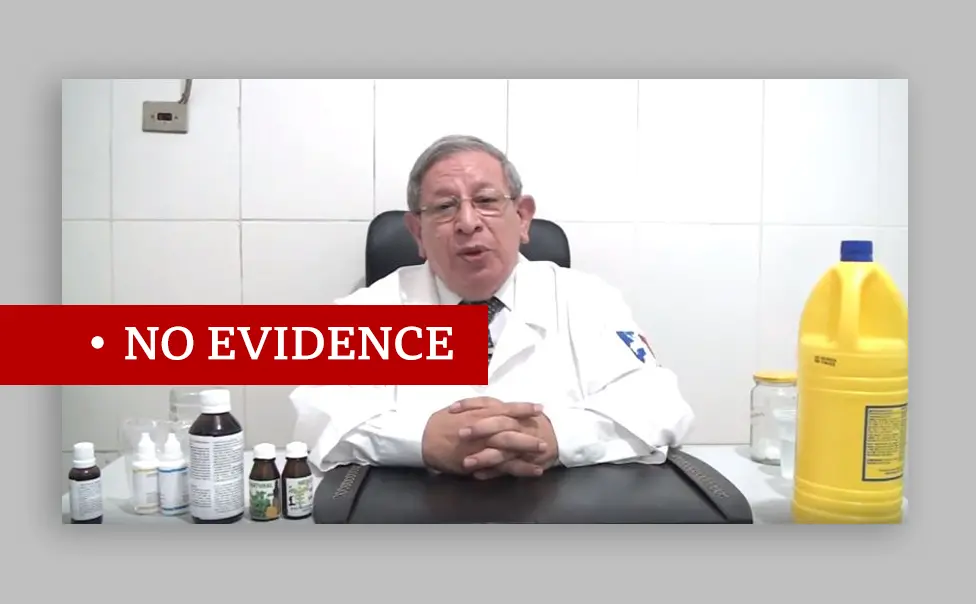
The dangers of chlorine dioxide
A recent video of a doctor from Paraguay shared thousands of times on Facebook claims a substance known as "miracle mineral supplement" (MMS) can help prevent Covid-19.
It contains chlorine dioxide, a bleaching agent, and health authorities have warned of the dangers of drinking it.
MMS products have been widely promoted on social media both in Latin America and in the United States, where they regularly appear in YouTube videos as treatments for a wide range of illnesses.
The US Food and Drug Administration (FDA) has said it's "not aware of any scientific evidence supporting their safety or effectiveness and they pose significant risks to patient health".
The FDA adds there have been reports of life-threatening consequences from drinking chlorine dioxide products.
Additional reporting by Alistair Coleman, Luis Fajardo, Olga Robinson, Shayan Sardarizadeh and Marianna Spring.



